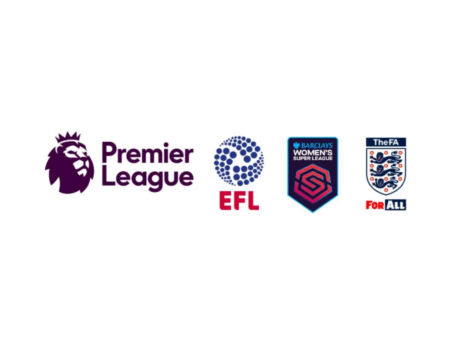GambleAware, a leading organization focused on preventing and treating gambling harms in the United Kingdom, is advocating for enhanced health warnings on gambling advertisements.
This call to action comes in response to a newly published report by an independent consortium of researchers and academics, which underscores the need for clearer messaging regarding the risks associated with gambling.
Current Messaging Lacks Impact
The newly released report, based on a survey of over 7,000 individuals, reveals significant shortcomings in the effectiveness of current safer gambling messages. The widely used industry-led slogan “Take Time To Think” (TTTT) was specifically highlighted for its failure to communicate the dangers of gambling harms or direct individuals to available support services.
Ineffectiveness of Current Slogans
The report’s findings indicate that the existing messaging does not resonate effectively with the public. Alexia Clifford, chief communications officer for GambleAware, emphasized the critical need for raising awareness about gambling harms as a public health issue. She pointed out the necessity of replacing the current industry slogan with more impactful health warnings, expressing concerns about operators misusing the GambleAware logo and potentially downplaying the risks associated with gambling.
“We urge industry to take heed of the growing body of evidence highlighting the need for better safeguards and restrictions,” Clifford stated.
Proposed Health Warnings for Greater Impact
The report advocates replacing current marketing messages with three new health warnings that have demonstrated greater clarity, impact, and memorability among both the general public and individuals who gamble. The proposed warnings are:
“Gambling can be addictive”
“Gambling comes at a cost”
“Gambling can grip anyone”
These messages aim to deliver a much more impactful and memorable warning, resonating more effectively with all audiences.
Gambling Harm Remains a Pressing Issue
Further findings from the study indicate that incorporating a separate GambleAware health warning at the end of gambling advertisements is significantly more effective in directing individuals to support services. The report’s findings align with recent government responses that emphasize integrating and reinforcing public health messaging to reduce gambling-associated harm.
Integration of Public Health Messaging
The integration of public health messaging is crucial for reducing gambling harms. Dr. Raffaello Rossi, a lecturer in marketing at Bristol University and co-author of the research, stressed the importance of implementing warnings on gambling advertisements to highlight the addictive nature of gambling and provide clear pathways to support services.
“We need to see better regulation of gambling operators who are widely bombarding us with their ads,” Dr. Rossi stated.
Developing New Guidelines for Safer Gambling
The research insights provided by the report are expected to inform the development of new guidelines for gambling operators. These guidelines will offer clear recommendations on promoting safer gambling and preventing harm.
Recommendations for Operators
Key recommendations for operators include:
Implementing more explicit health warnings in all gambling advertisements.
- Ensuring that these warnings are clear, impactful, and memorable.
- Incorporating a distinct GambleAware health warning to direct individuals to support services.
- Regulating the frequency and content of gambling ads to prevent oversaturation and reduce potential harm.
GambleAware’s Commitment to Public Health
GambleAware remains committed to addressing gambling harms as a critical public health issue. The organization continues to advocate for stronger regulations and more effective messaging to protect individuals from the dangers of gambling.
Call to Action for Industry and Regulators
The findings from the recent report serve as a call to action for both industry leaders and regulators. There is an urgent need to adopt these new health warnings and integrate them into all gambling-related marketing. By doing so, the industry can help mitigate the risks associated with gambling and provide better support for those in need.
“We must prioritize public health in our approach to gambling regulations,” Clifford concluded. “Only through collaborative efforts can we effectively reduce gambling harms and support vulnerable individuals.”
Conclusion: A Path Forward
The call for enhanced health warnings on gambling advertisements by GambleAware marks a significant step toward addressing gambling harms. The new proposed health warnings promise to deliver clearer, more impactful messages that can resonate with the public and provide necessary guidance towards support services. As the industry adapts to these recommendations, it is hoped that a more responsible and health-conscious approach to gambling advertising will emerge, ultimately leading to reduced harm and improved public health outcomes.
FAQs on GambleAware’s Advocacy for Enhanced Health Warnings on Gambling Advertisements
1. What is GambleAware advocating for?
GambleAware is advocating for enhanced health warnings on gambling advertisements to better communicate the risks associated with gambling and direct individuals to available support services.
2. Why is GambleAware calling for better health warnings on gambling ads?
This call to action is based on a newly published report by researchers and academics, which highlights the ineffectiveness of current safer gambling messages and underscores the need for clearer, more impactful warnings.
3. What are the shortcomings of the current gambling advertisements?
The current advertisements, particularly the slogan “Take Time To Think” (TTTT), fail to adequately communicate the dangers of gambling harms or direct individuals to support services.
4. Who emphasized the importance of improved gambling harm awareness?
Alexia Clifford, the chief communications officer for GambleAware, emphasized the importance of raising awareness about gambling harms and the need for more impactful health warnings.
5. What new health warnings does the report propose?
The report proposes replacing current messages with three new health warnings: “Gambling can be addictive,” “Gambling comes at a cost,” and “Gambling can grip anyone.”
6. How effective are the proposed health warnings compared to current messages?
The proposed warnings are shown to have greater clarity, impact, and memorability among both the general public and individuals who gamble.
7. What additional findings did the study reveal about health warnings?
The study found that incorporating a separate GambleAware health warning at the end of gambling advertisements significantly increases their effectiveness in directing individuals to support services.
8. How does this report align with government responses on gambling harms?
The findings align with recent government responses that emphasize integrating and reinforcing public health messaging to reduce gambling-associated harm.
9. Who is Dr. Raffaello Rossi, and what is his stance on gambling advertisements?
Dr. Raffaello Rossi is a lecturer in marketing at Bristol University and a co-author of the research. He stresses the need for better regulation of gambling operators and the implementation of clear warnings on gambling ads.
10. What are the key recommendations for gambling operators from the report?
Key recommendations to address the impact of gambling advertisements include implementing clear, impactful, and memorable health warnings across all gambling ads, incorporating a distinct GambleAware health warning to direct individuals to support services, and regulating the frequency and content of such ads to prevent oversaturation and mitigate potential harm.
11. What is GambleAware’s overall goal with these recommendations?
GambleAware aims to reduce gambling harms by improving public health messaging, ensuring better regulation of gambling advertisements, and providing clear pathways to support services for those affected by gambling.


















